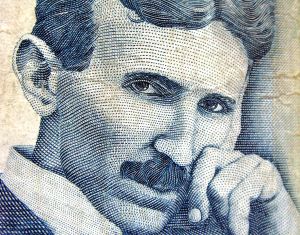

FOUR years ago Tesla made an announcement which would soon be emulated by other companies. They were openwashing their patents. They did not say they would not sue, but like many so-called 'pledges' they just stated they would restrict the circumstances under which patents would be leveraged inside the courts. They used terms like "open source", albeit in the context of patents (monopolies) that's a pretty wild distortion of the meaning of the term.
Nikola Motor Company has filed a lawsuit in Arizona alleging that Tesla’s all-electric Semi infringes on the hydrogen truck startup’s patents. The lawsuit claims Tesla willfully copied these patents in creating its electric truck, and Nikola is seeking $2 billion in damages in return.
“It’s patently obvious there is no merit to this lawsuit,” a spokesperson for Tesla told The Verge. A representative for Nikola Motors said in a statement to The Verge that “[w]e are not commenting because it is in the courts. The lawsuit speaks for itself.”
[...]
Nikola says that Tesla’s truck is causing “confusion in the market,” and claims that “Tesla’s infringement has harmed Nikola’s ability to attract investors and partners because investors can now partner with Tesla to have an alternative fuel semi-truck.” The damage from this alleged infringement, per Nikola’s calculations, is “in excess of $2 billion.”
Tesla Semi rival Nikola Motors has filed a $2 billion lawsuit against the California-based electric car and energy company. According to trucking startup, the Tesla Semi’s design infringes on the patents of the Nikola One, its hydrogen fuel cell-powered sleeper cab.
Nikola’s complaint outlines several design aspects of the Semi that were allegedly copied from the One. Among these are the Semi’s wraparound windshield, mid-entry door, front fenders, and the electric truck’s aerodynamic body. The similar drag coefficient between the Nikola One (0.37) and the Tesla Semi (0.36) was also cited as further evidence that the Elon Musk-led company copied Nikola’s design.
The lawsuit also stated that Tesla, at one point, attempted to hire Nikola’s chief engineer not long after the One was unveiled to the public. Furthermore, a cease and desist letter was sent to Tesla before the unveiling of the Semi, asking the Elon Musk-led company to hold off on the vehicle’s announcement until its patent issues with Nikola were resolved. Tesla, however, opted to ignore the request.
Converting ideas into tangible products has long relied on patents. Even before the U.S. Patent Act of 1790, which gave 14 years of exclusivity to whoever owned a piece of intellectual property, we have relied on a stringent code of laws to ensure that the creator of something new reaps the benefits of that idea and its execution.
The 15 people recently inducted into the National Inventors Hall of Fame have 545 patents among them. That’s a lot of light-bulb moments, many of them leading to demonstrable progress. But what if progress is also hampered by patents, as some are now saying?
Tesla CEO and SpaceX founder Elon Musk is one of those people. The vocal opponent of intellectual property law maintains they actually harm invention, and he’s acted on that belief: In 2014, Tesla promised not to sue people for using its electric car patents.